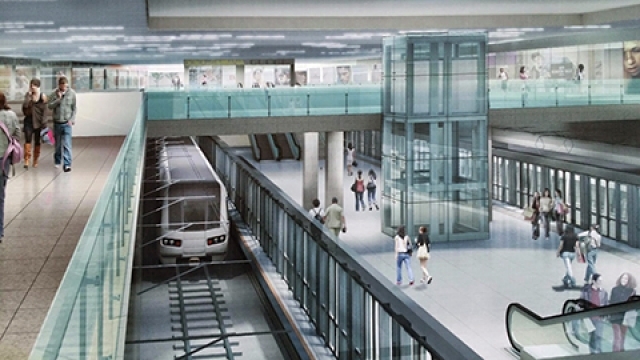Savills: Opportunities in underground urban planning
- Vietnam proposes strengthening Mekong-India transport connectivity
- Traffic police donates 30 life jackets to waterway passenger transporters
- 2 women arrested for transporting 1,400 synthetic drug pills
- More than 1,300 river-sea ships join coastal transport routes
Planning vision
According to Savills’ Research Department, the world’s first-ever underground railway, the Metropolitan Railway, was built in the UK in 1863. The system then expanded to 270 stations with a total length of 402 km, and the very appearance of this underground traffic network created a precondition for the development of the dependent subway in the metro area and contributed to London becoming the leading economic center of Europe and the world.
 |
| The construction and development of underground urban areas is an indispensable trend in modern urban development, according to Savills Vietnam. |
Today, subway systems and synchronous transport infrastructure have become an integral part of cities, with continual improvements made to meet operational needs. In Asia, Japan was the first country to recognize the importance of a metro system and began planning in 1905. It took more than 20 years to build the first route in the city, however.
With a developing economy like Vietnam, according to Mr. Su Ngoc Khuong, Investment Director at Savills Vietnam, the experience of building underground cities in the world will provide valuable lessons for the country’s urban areas, like Ho Chi Minh City. There is also a tendency to develop compact cities in the country and also elsewhere around the world.
This is an indispensable trend in modern urban development, as large cities will develop vertically to ensure convenient travel times for residents. At present, although the construction progress of the first urban railway network is slower than expected, urban underground planning, starting with urban underground planning projects, has been a goal that urban planners and foreign investors have targeted, due to the tremendous commercial potential in areas around the metro line in Ho Chi Minh City.
Basically, urban underground space is formed from underground structures such as transportation, civil, underground technical infrastructure, and industrial, and the underground sections of highways. As a content of urban planning, underground urban planning is always associated with the needs of urban development and is synchronized with projects having been constructed above ground.
When all requirements are met and incentive policies and government support are introduced, underground cities will develop in line with investors’ expectations through effective economic activities.
Opportunities “underground”
Once a city has an underground urban space in operation, local residents will have more living space and hence change their daily consumption habits. This leads to business units also having new opportunities for expansion and development instead of just having to settle for existing locations.
This will also help the domestic real estate market add a fresh product line, creating more vibrancy in the market. According to Mr. Khuong, new underground real estate products will become a prominent theme of the market when the underground city is formed. This is also an attraction for retailers and food and service providers in approaching underground locations near crowded public areas, such as train stations, to expand business operations.
“This is a new step forward; there is almost no precedent in Vietnam,” said Mr. Khuong. “Developers or investors are quite cautious with this new type of product while foreign investors have more experience. Local developers and domestic investors, however, will be able to study precedent markets and have plans to catch up with the trend.”

